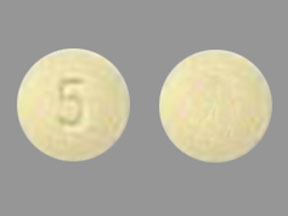Belsomra Disease Interactions
There are 6 disease interactions with Belsomra (suvorexant).
Anxiolytics/sedatives/hypnotics (applies to Belsomra) depression
Major Potential Hazard, Moderate plausibility.
A variety of abnormal thinking and behavior changes have been reported to occur in association with the use of most anxiolytics, sedatives and hypnotics. Some of these changes include decreased inhibition, aggressiveness, agitation, and hallucinations. These drugs can cause or exacerbate mental depression and cause suicidal behavior and ideation. Therapy with these drugs should be administered cautiously in patients with a history of depression or other psychiatric disorders. Patients should be monitored for any changes in mood or behavior. It may be prudent to refrain from dispensing large quantities of medication to these patients.
Anxiolytics/sedatives/hypnotics (applies to Belsomra) severe renal impairment
Major Potential Hazard, Moderate plausibility. Applicable conditions: Renal Dysfunction
Some anxiolytic, sedative and hypnotic drugs have not been studied in patients with severe renal impairment and should not be used on these patients.
Suvorexant (applies to Belsomra) impaired respiratory function
Major Potential Hazard, Moderate plausibility. Applicable conditions: Pulmonary Impairment
Suvorexant has respiratory depressant effects and should be used with caution in patients with compromised respiratory function. Suvorexant has not been studied in patients with severe sleep apnea and severe COPD and should not be used in these patients.
Suvorexant (applies to Belsomra) narcolepsy
Major Potential Hazard, Moderate plausibility.
The use of suvorexant is contraindicated in patient with narcolepsy.
Anxiolytics/sedatives/hypnotics (applies to Belsomra) glaucoma
Moderate Potential Hazard, Moderate plausibility. Applicable conditions: Glaucoma/Intraocular Hypertension, Urinary Retention
Some hypnotic drugs can have an anticholinergic effect and should be used with caution in patients with glaucoma, and trouble urinating due to retention or enlarged prostate.
Anxiolytics/sedatives/hypnotics (applies to Belsomra) liver disease
Moderate Potential Hazard, Moderate plausibility.
In general, anxiolytics, sedatives and hypnotics are extensively metabolized by the liver. Their plasma clearance may be decreased and their half-life prolonged in patients with impaired hepatic function. Therapy with these drugs should be administered cautiously in patients with liver disease (some are not recommended in severe liver impairment), and the dosage should be adjusted accordingly. Laboratory testing is recommended prior and during treatment.
Switch to professional interaction data
Belsomra drug interactions
There are 500 drug interactions with Belsomra (suvorexant).
Belsomra alcohol/food interactions
There is 1 alcohol/food interaction with Belsomra (suvorexant).
More about Belsomra (suvorexant)
- Belsomra consumer information
- Check interactions
- Compare alternatives
- Pricing & coupons
- Reviews (547)
- Drug images
- Side effects
- Dosage information
- During pregnancy
- FDA approval history
- Drug class: miscellaneous anxiolytics, sedatives and hypnotics
- Breastfeeding
- En español
Related treatment guides
Drug Interaction Classification
| Highly clinically significant. Avoid combinations; the risk of the interaction outweighs the benefit. | |
| Moderately clinically significant. Usually avoid combinations; use it only under special circumstances. | |
| Minimally clinically significant. Minimize risk; assess risk and consider an alternative drug, take steps to circumvent the interaction risk and/or institute a monitoring plan. | |
| No interaction information available. |
See also:
Further information
Always consult your healthcare provider to ensure the information displayed on this page applies to your personal circumstances.


